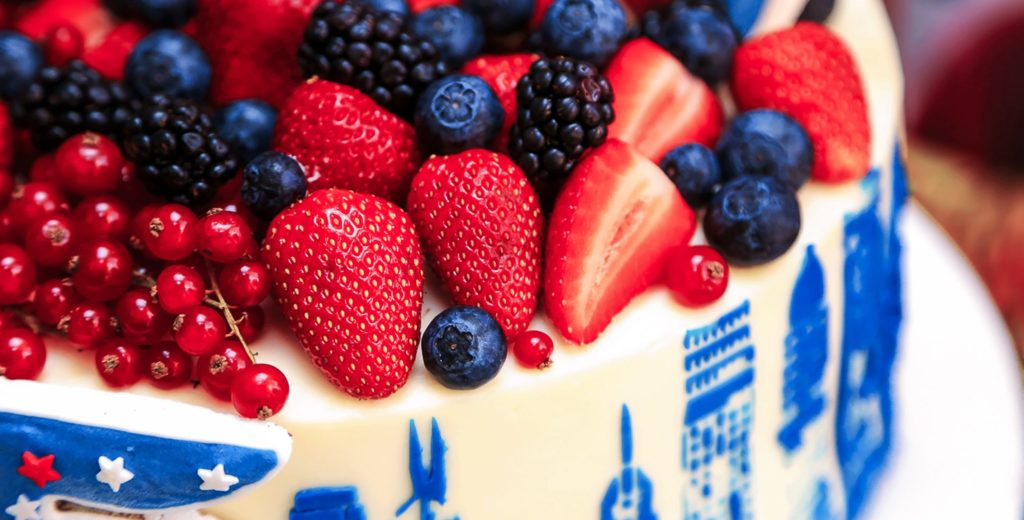Once again, the famous—or infamous, depending on your perspective—cake baker is back in court. Jack Phillips, who came to public prominence when his refusal to create a custom wedding cake for a gay couple landed him in a lawsuit that made it all the way to the Supreme Court, is involved in a repeat of this conflict, this time for refusing to bake a birthday cake celebrating a transgender woman’s transition.
When the initial case came to light, I’m pretty sure I felt a strong pull toward my progressive values, which told me it was wrong of this baker to discriminate against a certain set of people, especially based on his religious convictions. I viewed this as a classic example of a distorted ideology causing grave harm, that should be remedied through the force of law, and that if the Court ruled in his favor, the law should be made more explicit to prevent this form of discrimination.
Now, as the controversy is reintroduced into public consciousness, I feel very differently. I have come around towards the opinion that, although I still align very much with their values, my fellow progressives sometimes lose their sense of balance around those values, and place an outsized emphasis on that of preventing harm, versus others like personal autonomy. That latter value underpins the liberalism that formed not only the basis of the modern Democratic Party, but also the “classical liberal” traditions that created the foundation of the modern democratic republic.
Let me be clear, I still have a deep faith in the role of government to enforce the policies we all agree upon that help us create together a well-functioning society, with rules of the road in both a literal and figurative sense. This includes public health mandates that keep us safe collectively, which certainly puts me at odds with many of my conservative friends during the Covid pandemic.
But I do believe there are limits to this principle, and the baker’s case is a good illustration. I wonder how many of my fellow progressives would advocate for the Supreme Court to compel a conservative artist to accept a commission for a Pride mural. Not only do I doubt they would take that step, but the situation likely wouldn’t even arise, since who would want someone to create a piece of art that doesn’t reflect their beliefs? It would probably be crappy art.
If you assume that the people who have tried to commission the baker for their cakes were doing so because they value the quality of his work, then it seems clear they’re seeing him as an artist—one who is unfairly exclusionary with his talents. But we don’t—historically at least—sanction people with unpopular beliefs by making them hire out their artistry to anyone who will pay. And I don’t think it would be consistent with the Constitution to enforce that sort of thing.
It’s common for progressives to talk about our focus on impact versus intent, and while I believe both matter for our human interactions, there’s no denying the importance of the former. So if we examine what the ultimate result is of trying to enforce this sort of opprobrium with law, it seems fairly obvious that it leads to the sort of backlash that ends up injuring the cause of equity.
Contrary to the understanding of some progressive activists, it was popular culture, and its increasing embrace of LGBTQ communities, that brought about the mass acceptance of gay marriage, with the Court reading the changing mood of society to codify it officially, not the other way around. More and more Americans have come to understand that there are queer people in their lives whom they love, and this manifestation of “intergroup contact theory” shows us that the free exposure of one group to another tends to increase the understanding of each other’s humanity and worth.
It can be frustrating to see progress moving too slowly, as it always does, leading us to lean on our governments to enforce protections for those populations that we see being harmed by current attitudes. And at times this is truly necessary, as in the forced integration of public schools that had featured an inherently—horrifically—unequal learning environment for black children.
But that use of government force must be balanced against its other consequences, and in the case of the baker, it seems very clear that those consequences—for gay and trans people especially—shift the balance towards negative.
A recent Wall Street Journal column made arguments that were aligned with this view, but then brought the debate into a classic us-versus-them realm that tried to show that “their side is worse than our side on this issue.”
“It also points to a fundamental difference between the religious and secular fundamentalists these days. Take the most fire-breathing preacher in backwoods Mississippi. He may rail at what he takes to be the sinful ways of sexually liberated San Francisco. But he’ll largely settle for keeping pornography and Drag Queen Story Hour out of a local library.
“By contrast, the progressive in San Francisco is not content with the sexual license his home-town affords. He doesn’t seem to be able to sleep at night unless he knows the local library in some rural Mississippi town has its own Drag Queen Story Hour.”
From my (again, progressive) perspective, this is about what level of society should be able to impose its standards on us. The Mississippi preacher, in my experience, wants to save the souls of his whole town at the very least, so he makes sure Drag Queen Story Hour is excluded from his community, thereby perpetuating the message that it is not a town welcoming of queer folks. That can certainly be deeply harmful to those LGBTQ people living there, especially the kids who are discovering the chasm between their true selves and what is acceptable to their community.
By contrast, the activist in San Francisco wants to ensure that this harm doesn’t happen to anyone else—especially if they’re among the many queer folks who made their way to California from somewhere less “tolerant” after having experienced this harm.
But I believe strongly that both are sincere in their motivations—an assumption that I view as essential to our work at Braver Angels—and both want to use societal mechanisms to impose their values on others. We judge them differently based on which values we share with them.
There’s an inherent tension between this desire to enforce common values that we believe are important for creating a free and prosperous society and allowing individual communities within that society to choose their own values, to the exclusion of some chosen by others. So who gets to decide where this line is drawn?
I think the answer to this is actually more straightforward than it might seem at first blush. It often has been—and largely should be for good reason—a function of the ease with which someone can actually choose the community to which they belong. If there are barriers to that choice, we should generally default to inclusivity and protection from harm for those who fall outside of the majority. Those black public school kids couldn’t easily uproot and move to a state that was more accepting of them, so it was necessary to create this acceptance by force.
But one of the strengths of American society, enabling the cultural pluralism that has made us the world’s engine of innovation that we’ve been for the past century, is what Alexis de Tocqueville observed as our freedom of association and tendency to form values-based communities to advance our goals together.
More conservative communities, like many churches, have a very difference balance of values than I would choose, but I support their right to maintain this balance, as long as those outliers born into that community can easily choose another that would support them more fully.
Okay, so while I did call the question straightforward, I’ll concede that this facility of choosing one’s community can often be in doubt. But returning to the case of the baker, it seems clear that anyone seeking a cake to celebrate their progressive values can go to any number of other bakers without trying to impose them on this man.
If he wants to lose out of the increasing business from LGBTQ customers, that’s his right. But I think that over time—compelled not just by commercial interests (indeed, Phillips claimed after the first case that his decision to leave the wedding cake game altogether cost him 40 percent of his business), but by his interaction with those folks and a sense of decency—we’ll see him move towards embracing them, much more quickly than if he were forced. So while the intent of standing up for our values is important, that impact is what truly matters.





4 thoughts on “Imposing Our Values: Piece of Cake!”
So, to balance things out, the preachers should rally and get Bible study class in every school and library in SanFran and everywhere, to make sure religious kids growing up in those communities do not feel left out.
We must start flying Christian flags next to BLM/Pride ones, hire Rachel Maddow to host a scripted event on the benefits of traditional marriage ( it’s her job to talk for money, so she can’t refuse).
There are a lot of ways to put the shoe on the other foot – it’s time to start doing it!
PS. The baker doesn’t discriminate against gay ppl – he would be happy to bake the cake for their retirement/graduation etc. His religion prohibits him from celebrating a sin – and the act of homosexual sex (legalized by marriage) is a sin. It’s not targeting gay or trans ppl – it’s refusing to participate in sin. When gay/trans do non sinful things – he would bake the cake. He would also refuse to bake a cake for straight couple to celebrate abortion – abortion is a sin. It is legal, but it is still a sin.
It’s very important to separate the sin from the sinner – reject the former, and accept the latter.
Very sad to hear your views on gay folks but I accept your right to state them.
I think it would have been a much more interesting article to have two different perspectives shared about the issue. And then, that the author has to comment negatively on the one comment prior to this, is simply ironic. Instead of being a Braver Angel, Randy has shown his inability to ‘hear’ another perspective in a comment.
I don’t call myself red or blue for politics. I think Irene made excellent opposing examples of the ‘other shoe’ may look like. And in expressing her definition of the bakers paradox, of whether or not to ‘celebrate sin’, she’s making an example of a different viewpoint that I think is totally fair.
It’s clear that we at Braver Angels need to really practice what we preach. It’s not easy.
Thanks for your engagement with this, Pat. Would you mind expanding on your critique of my statement about Irene’s comment? Was it unclear that I was saddened specifically about her calling gay sex a sin? Or was that clear, but you took exception to me only focusing on that? Or, as a third possibility, did you feel that me stating that I was sad about that view betrayed an inability to hear her perspective? Sorry, I’m editing this multiple times since I keep coming up with new possible interpretations of your comment. Is it also possible that you believe that when she said gay sex is a sin that she was representing someone else’s viewpoint for rhetorical purposes, but that it’s not her own? It seems pretty clear to me that she’s saying unequivocally that gay sex is a sin, but maybe you don’t agree.
I’d also be curious as to what additional perspective you felt was missing from my column.